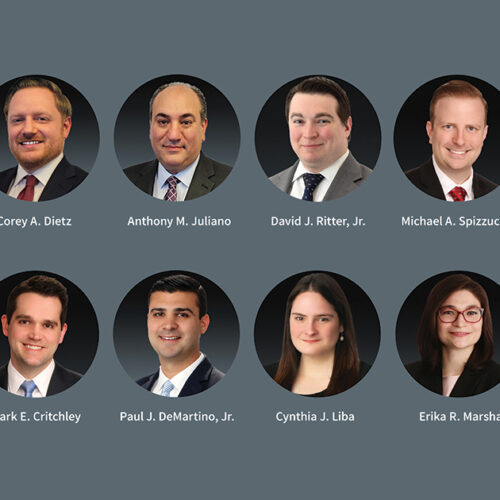Tax Alert: TIGTA Report on Underreporting of S Corporation Officers’ Compensation
10/28/2021
As part of the Brach Eichler Tax Practice’s effort to keep our clients and advisors up to date on current trends in tax compliance, we focus today on a recently released Treasury Inspector General for Tax Administration report captioned “Efforts to Address the Compliance Risk of Underreporting of S Corporation Officers’ Compensation Are Increasing, but More Action Can be Taken,” dated August 11, 2021, Report Number: 2021-30-042. (“Report”).1
The Internal Revenue Service Restructuring and Reform Act of 1998, Public Law 105-206, created an internal watchdog within the Treasury Department to provide independent oversight of the Service’s activities and operations. The watchdog is the Treasury Inspector General for Tax Administration (“TIGTA”) and is led by the Inspector General and his principal deputy. TIGTA’s mission is to promote economy, efficiency, and effectiveness in administering the nation’s tax system. TIGTA performs some of its mission through audits and reports of which TIGTA publishes to its website. TIGTA has become an outspoken critic of IRS practice, with its report often generating significant attention. These reports often result in changes in IRS practice and possible legislation.
It was with this background in mind that we chose to highlight the Report on the Underreporting of S Corporation Officers’ Compensation mentioned above.
As the Report provides, TIGTA found that the issue of S corporations not paying salaries to officers and avoiding employment taxes has been reported for many years. IRS revenue agents have the opportunity to assess the issue when (i) examining a Form 1120-S, U.S. Income Tax Return for an S Corporation (“Return”), in the field; (ii) addressing the issue more directly by examining a Return in the IRS’s Employment Tax function; or (iii) through Compliance Initiative Projects (“CIPs”), which are authorized activities outside of the planned strategies with the intended purpose of correcting noncompliance around particular issues or areas of concern. The IRS selects less than one percent of all S corporations for examination. When the IRS does examine S corporations, nearly half of the revenue agents do not evaluate officers’ compensation during the examination, even when single-shareholder owners may not have reported officers’ compensation and have taken tax-free distributions instead of compensation.
TIGTA’s analysis of all S corporation returns received between Processing Years 2016 through 2018 identified 266,095 returns that were not selected for a field examination with profits greater than $100,000, a single shareholder, and no officers’ compensation and no officers’ compensation claimed. The analysis found that the single-shareholder owners had profits of $108 billion and took $69 billion in the form of a distribution, without reporting they received officers’ compensation for which they would have to pay Social Security and Medicare tax. TIGTA estimated that the 266,095 returns may not have reported nearly $25 billion in compensation and may have avoided paying approximately $3.3 billion in Federal Insurance Contributions Act tax.
Although most of the TIGTA recommendations were rejected, TIGTA recommended that the Commissioner, Small Business/Self-Employed Division2 (“SB/SE”) (i) evaluate the risk of non-compliance associated with officers’ compensation in S corporation returns and update the examination plan; (ii) evaluate the benefits of using a threshold and specific criteria as part of classification guidance; and (iii) use compliance results from established workstreams (SB/SE uses 33 methods, called workstreams, to identify and review tax returns that may merit an audit) to inform decision-making around alternative treatments.
As the S Corporation page of the IRS website3 (an example of a past CIP mentioned above) makes clear, shareholder-employees are subject to employment taxes even when shareholders take distributions, dividends, or other forms of compensation instead of wages. The substantive rules require that S corporation shareholders performing services are to take reasonable compensation and this has been upheld in many cases. For some of those cases, see Veterinary Surgical Consultants, P.C. v. Commissioner, 117 T.C. 141 (U.S.T.C. 2001); Joly v. Commissioner, T.C. Memo 1998-361, aff’d by unpub. Op., 211 F 3d 1269 (6th Cir. 2000); Joseph M. Grey Public Accountant, P.C. vs. Commissioner, 119 T.C.121 (U.S.T.C. 2002); David E. Watson, P.C. vs. U.S., 668 F.3d 1008 (8th Cir. 2012).
Although the failure to pay compensation saves Social Security and Medicare taxes, the shareholder is not building Social Security credits. Furthermore, because of the lack of payroll taxes, any available disability benefits based on compensation will be minimal.
Given the current tax climate, tax professionals should not be surprised to encounter more audits with an increased focus on Subchapter S compensation issues, and even though the TIGTA recommendations were rejected, if past TIGTA reports are any indication, the IRS will take corrective action to address the issue.
If you or your client should have questions dealing with the choice of business entity, compensation issues, or representation at an IRS audit, please contact:
David J. Ritter, Esq., Member and Chair, Tax Practice, at dritter@bracheichler.com or 973-403-3117
Stuart M. Gladstone, Esq., Member and Co-Chair, Trusts and Estates Practice, at sgladstone@bracheichler.com or 973-403-3109
Susan K. Dromsky-Reed, Esq., Member and Co-Chair, Trusts and Estates Practice, at sdromsky-reed@bracheichler.com or 973-403-3146
1 Accessible via the Treasury website, last accessed October 20, 2021.
2 One of four operating divisions in the IRS which processes 57 million returns annually, the others being (i) Wage and Investment; (ii) Large Business and International; and (iii) Tax-Exempt and Government Entities.
3 Accessible on the IRS website, last accessed October 20, 2021.
Related Practices: Tax, Trusts and Estates
Related Attorney: David J. Ritter, Stuart M. Gladstone, Susan K. Dromsky-Reed













